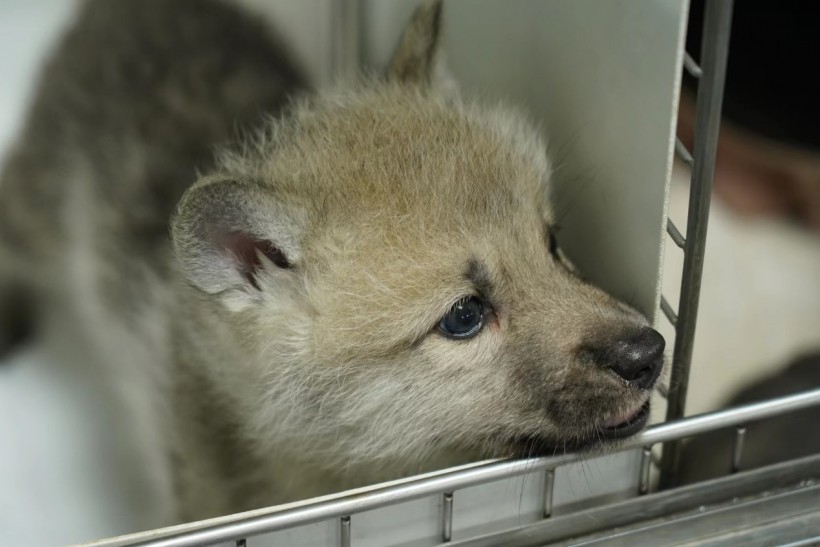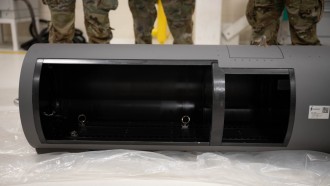According to a Chinese pet cloning company, the first cloned Arctic wolf (Canis lupus arctos) in the world was born and was carried by an unusual surrogate mother: a beagle.
As reported first by the Chinese news outlet Global Times, the cloned female wolf pup named Maya and her beagle mother were revealed to the world in a brief video during a press conference conducted on September 19 by the Sinogene Biotechnology Company in Beijing.

The Story of Maya
Sinogene representatives said the video was first shown on June 10 in a Beijing lab, about 100 days after Maya was born. Sinogene is typically focused on cloning deceased animals, such as dogs, cats, and horses, for private clients.
However, according to Global Times, the corporation now intends to employ its knowledge to assist in the conservation effort by cloning endangered animals.
A fully grown Arctic wolf named Maya that perished in captivity at Harbin Polarland, a wildlife park in northeast China, served as the DNA source for the creation of the cloned wolf.

In early 2021, the original Maya, born in Canada before being transported to China in 2006, passed away from old age.
But after two years of laborious efforts, Sinogene's general manager Mi Jidong announced at the company's press conference that the cloning of Maya was successful.
Researchers from Sinogene used the somatic cell nuclear transfer (SCNT) technique to combine immature dog egg cells with Maya skin cells and produce 137 Arctic wolf embryos.
85 of those embryos were successfully implanted into seven surrogate beagle dogs-only one of those transplanted embryos developed to term during pregnancy.
Because there weren't enough female wolves in captivity for the scientists' studies, the researchers utilized beagle surrogates. Fortunately, dogs and wolves share enough genetic material for the hybrid pregnancy to develop successfully.
The wolf pup will eventually be moved to Harbin Polarland to live with other Arctic wolves, but for the time being, Maya is living with her surrogate mother at a Sinogene facility in Xuzhou, eastern China.
Nevertheless, the park's keepers think she will need to be gradually brought to the rest of the pack due to her isolated upbringing, as per Global Times.

Read also: 'CRISPR Babies:' Chinese Researchers Want a Facility for Gene-Edited Children
Second Arctic Wolf Clone
Additionally, Sinogene disclosed that a second Arctic wolf clone, made with DNA from an unidentified male, was going to give birth on Sept. 22. But there have been no verified reports of the pup's birth up to this point.
Although no specific projects have been revealed yet, the company also unveiled new cooperation with the Beijing Wildlife Park to clone more captive species in the future.
According to CBS News, Sinogene also worked on a project in 2019 that resulted in the creation of six identical German shepherd clones that were later recruited into the Beijing police force.
The International Union for Conservation of Nature has classified Arctic Wolves as the least concern, but according to WWF, climate change is projected to significantly affect their ability to find food in the wild in the next decades.
Related Article: Human Protein Delivers mRNA to Body, CRISPR Pioneer Develops SEND to Treat Several Diseases
This article is owned by Tech Times
Written by Joaquin Victor Tacla









